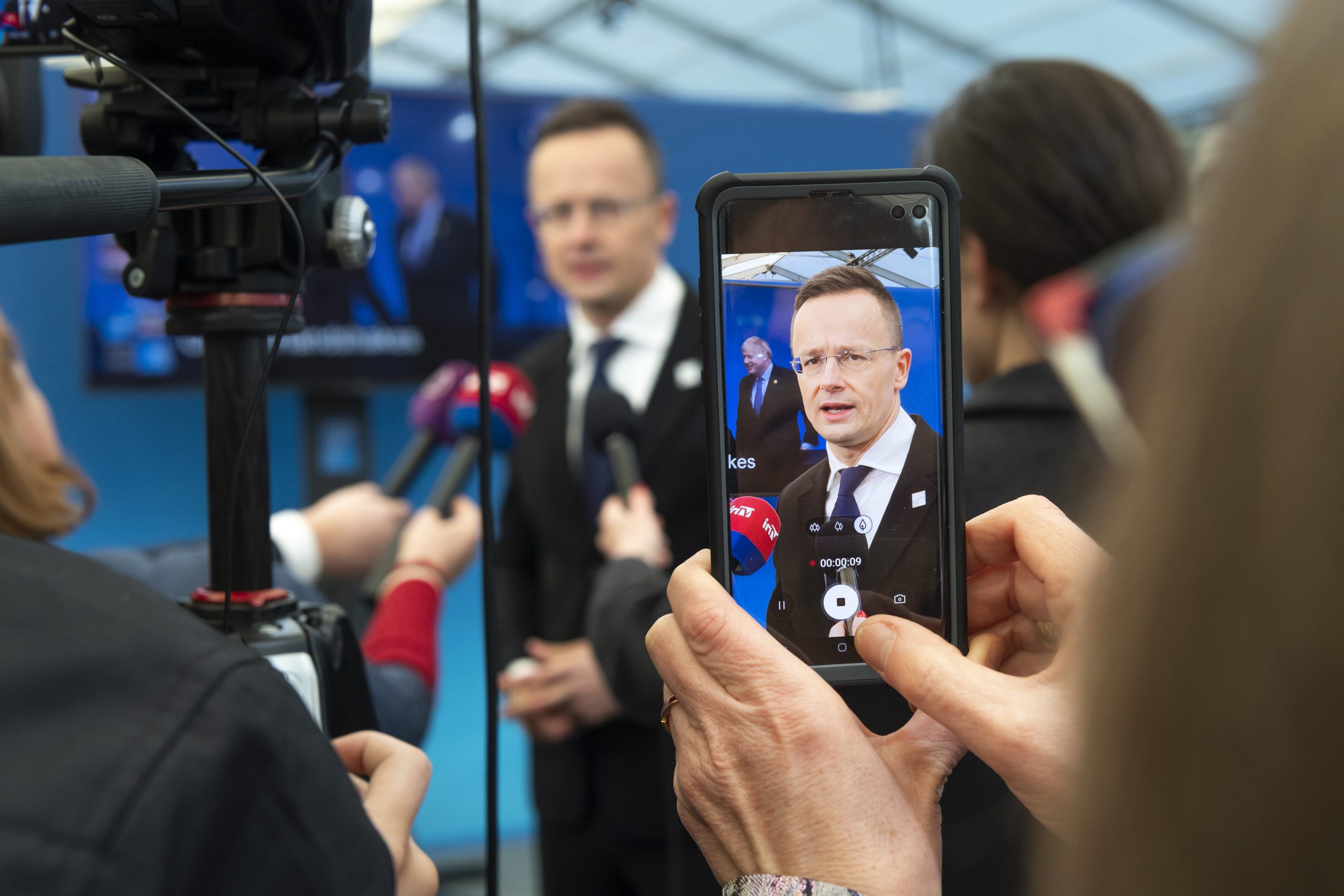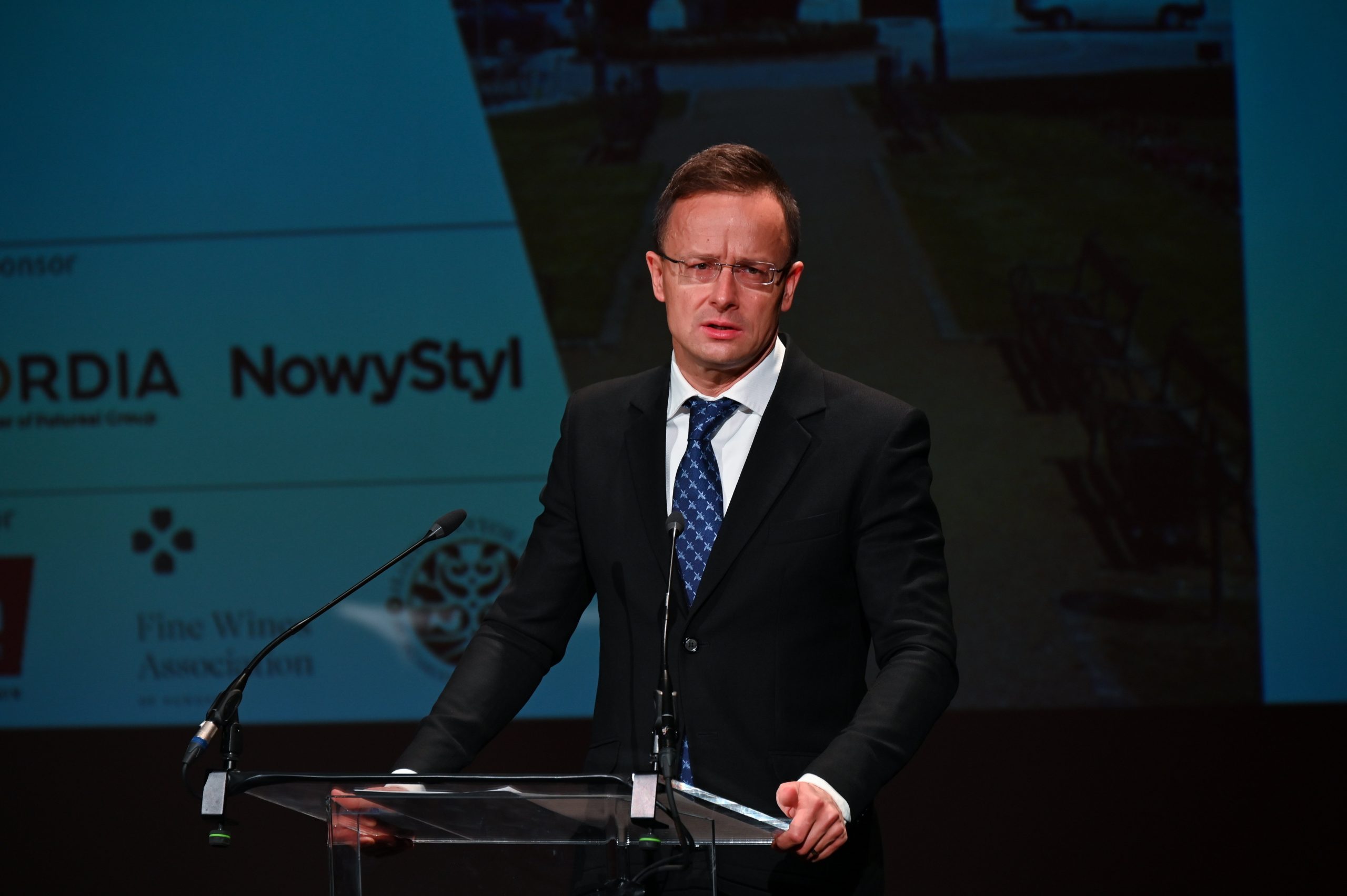
Speaking ahead of a meeting of NATO foreign ministers in Riga, Szijjártó urged dialogue between "East and West."Continue reading

Foreign Minister Péter Szijjártó gave a thirty-minute interview to the Russian state-backed Russia Today TV‘s program, Worlds Apart. He talked about several topics, including vaccination, migration, democracy.
The interview by Russian reporter, Oksana Boyko, started with the same topic that the Hungarian Foreign Minister talked about recently to CNN as well: the relationship between the EU and Hungary. As he said then, he also now emphasized the debate about a United States of Europe vs. the European Union being based on strong member states, the latter being Hungary’s approach, he said, which makes us part of the minority. He said, however, that the “European Union has been confronted with many challenges simultaneously,” and therefore, “it is natural to have a debate about which way to go forward.”
“Those who treated us very rudely are now basically giving a standing ovation to those who are acting similar to how we acted back in 2015,” Szijjártó responded to how Hungary was criticized “for not being more welcoming of migrants,” as the reporter put it.
“When it comes to supporting pro-migration NGOs, when it comes to the Western Balkan Route, when it comes to making incredibly responsible statements regarding the situation in Afghanistan, when it comes to the Mediterranian, there might be some comments which sound to be different compared to what has been said since 2015 but the essence of the European migration policy remained unchanged, unfortunately,” the Minister said.
The next topic was about the future effects of Chancellor of Germany Angela Merkel stepping down. Szijjártó said it is something that has to be considered together with the upcoming French presidential election, because after that there will be “a new setup of leaders of the two strongest countries in the European Union,” adding that Germany is Hungary’s “number one trading partner and number one investment partner so, for us, a pragmatic and mutually respect-based relationship is important with Germany. Unfortunately, especially because the German left-wing parties and the German media were recently attacking us basically on a continuous basis. For example, about our relationship with Russia.”
“The big and strong countries can afford to say and act differently. Small countries cannot afford that.” According to Szijjártó, this is what the Western Europeans do, “they act and speak differently, they always criticize Russia but they make the biggest business with them, or they criticize China, they criticize us for cooperating with China and then they make enormous deals and business with the Chinese,” he told the reporter. “It is an enormous hypocrisy.”
As we have also reported, Hungary was not invited to the virtual democracy summit that US President Joe Biden will host on December 10-11, being the only European country that is left out, and as Szijjártó noted, one of the two NATO members. The United States is inviting those countries to the Democracy Summit that are setting the bar high for themselves and others in the renewal of democratic values, policies, and institutions, Uzra Zeya, the US State Department’s Undersecretary for Civilian Security, Democracy, and Human Rights previously stated.
“We are a country with a 1,000-year-old Christian statehood. Our history is full of fights for freedom, liberty, and sovereignty. We don’t need any external actor or factor to judge the state of our democracy.”
Szijjártó was reminded that Biden called Hungary (and Poland) “totalitarian regimes,” in 2020 when he was still a presidential nominee. He answered now that he also reacted to this before, which was “what they say about us, has nothing to do with reality.” He added that “they represent a totally different ideological approach than we do.” Szijjártó thinks it is not a problem: “we are different, we can think differently. My only problem in this regard is that there is no mutual respect.” According to him, the same respect is “not being shown to Hungary,” that Hungary shows toward the US. “There are many lies, fake news, and insults about Hungary, about the Prime Minister himself.”
The reporter mentioned that Budapest seems to be a meeting point for people now because of its location and because it does not have as many regulations in the time of COVID-19. “We are a Central European country. So we have always been between West and East. […] We always wanted West and East to have a pragmatic relationship, a continuous dialogue with each other. Why? Because our history has taught us that whenever there was a conflict between East and West, Central European countries, among Hungary, we have always lost,” Szijjártó said. He added that he does not want to speak over the fact that “we were very successful on vaccination, especially in the beginning of the campaign,” this is why “we could get rid of the restrictions.”
(This, however, met with criticism in Hungary. Some thought that the government got rid of the restrictions too soon and were worried about the effects).
“I really can’t find the words to describe how I feel about the fact that there are still many countries considering the issue of vaccination as if it had a political or ideological nature. It’s about the lives of the people,” Szijjártó said, mentioning that he “can’t imagine” what other countries are gaining from this and he is “very frustrated” about the issue.
The Foreign Minister explained that normally, vaccines can be approved in the EU by the European Medicines Agency, however, “a European, not a national regulation says that in case of the state-of-emergency, like this one, the national regulators are also allowed to approve vaccines on a temporary basis.” Szijjártó said that this is what happened in the case of Sputnik and Sinopharm, therefore the use of them in Hungary is “being based on a European regulation.”
He also added that his Western European colleagues tell him behind closed doors that they know how well the Sputnik vaccine works, yet publicly act differently. The reporter agreed that the Russian vaccine is one of the most effective ones, “if not the most effective.”
Szijjártó said he expected that there will be one positive effect of the pandemic, “the understanding by the countries of the world about the very strong interdependence we are living in. I hoped for conflicts to be left behind and I hoped for countries to understand that we need to cooperate in such issues like saving the lives of the people. But unfortunately, I was disappointed.” According to him, “no common, joint actions on the scientific side, on the vaccine side have taken place.”
“We have established our own capacities of manufacturing ventilators, gloves, protective suits, medicines, the construction is going on regarding the vaccine factory,” the Minister said. (Yet, not everyone agrees that the healthcare system works well. Tamás Ferenci, biostatistician, said before that “…people who follow the public media are under the impression that everything is perfect in hospitals, that there are no problems, no difficulties, no staff shortages, no staff fatigue, no doctors under indescribable pressure, no professional staff without help in desperate situations, no medical staff, not a single word in a year and a half, and certainly not a single word about the possibility that a patient might receive less than perfect care”).
Hungary withdrew from Afghanistan a few months ago after airlifting 540 people who worked in the country.
“As being a member of NATO, of course, we always take part in common actions. That’s not a question, solidarity is what NATO is really about. The decision to leave was made very quickly,” Szijjártó said about the topic, “…20 years of this international mission ended up in a failure.”
Finally, the reporter asked the Hungarian Foreign Minister that in case a conflict would erupt between Russia and Western Europe or NATO, what would Hungary do. Szijjártó responded that “Number one: we are a member of NATO and that brings some commitments and obligations which can never be a question. Second: we will do our best always, to avoid, to prevent any such conflict between NATO and Russia.” He added that “there’s no one, at least having a complete mind, even in the Western part of Europe, who would want such a conflict to be created. Everybody in the West will do his or her best to avoid such a conflict. I’m pretty sure about that.”
The full interview can be watched here or listened to here.
Featured image via Tibor Illyés/MTI